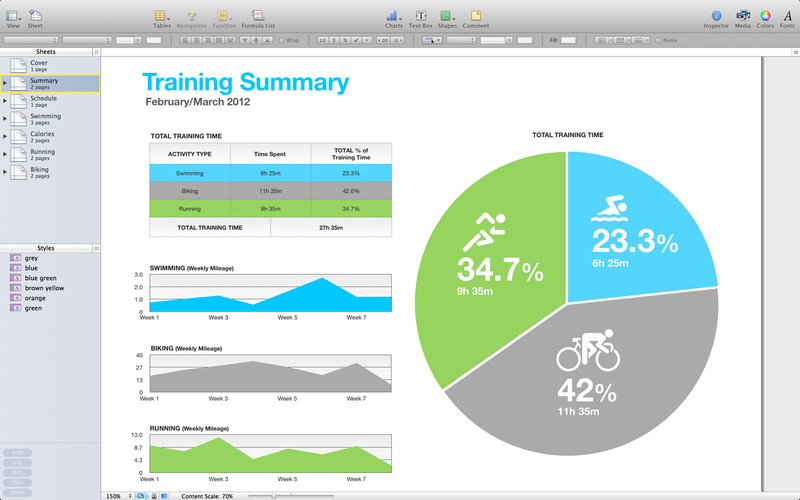

Note also that it is always advisable to backup spreadsheets on a USB key or a cloud service, in order to prevent the loss of the file’s original format during troubleshooting operations like the ones described above. The files exported to Numbers 09 will have an ‘09 suffix, and will most likely run on Numbers for macOS 10.14. This results in three different copies of each spreadsheet. Another way of exporting the spreadsheets to a Numbers ‘09 format is to open the files on the older version of Numbers, and then use the ‘export to Numbers ‘09’ option accessible on the File menu to export the files. Copy the spreadsheets from iCloud to the hard drive, and then export each one into the ‘09 format. Nonetheless, the most tenable solution is to export all the spreadsheets to the ‘09 or the latest format. The root of the matter is that the newer version of Numbers is unable to open a version of the spreadsheet which the older Numbers version can easily open.
#NUMBERS APPLICATION FOR MAC FREE DOWNLOAD HOW TO#
How to open Numbers file as normal? Another way around this issue is to explore the "browse all versions" option, which allows the user to have access to all versions of the Numbers file which should be obtainable via iCloud. However, a Mac OS Numbers update as a solution is completely ruled out here, since the update itself might be responsible for the problem in the first place.

The next possible solution is to uninstall and then reinstall macOS 10.14 numbers. The first thing to do is to reboot the device in Safe Mode in order to determine whether there is a newly installed app or login item that has a hand in the issue. There are a number of ways to recover numbers spreadsheet in the face of such an error message. Apparently, any MacOS updates also bring about updates to iWork apps, including Numbers. This issue might also occur after a Mac user download numbers for macOS 10.14 update.


 0 kommentar(er)
0 kommentar(er)
